Exhibitions
The Haifa Way: 70th Anniversary of Haifa Museum of Art
New Exhibition
Haifa Museum of Art, one of the first museums established in Israel, is celebrating its 70th anniversary this year. A museum's material heritage is embodied in its collection, in the works it purchased and those donated to it. The works in the collection determine the museum's genetic code, and each new work entrusted for safekeeping joins its predecessors in shaping the museum's identity. This exhibition sets out to decipher the identity of Haifa Museum of Art by delving into its collections, asking where it is headed in the future.
Shmuel Bonneh: From the Land of the Bible to the Great Sea
In 1971, the Haifa Museum of Art held a retrospective exhibition for Shmuel Bonneh. Almost 50 years later, the Mané-Katz Museum is proud to present Bonneh's rich artistic career, in an exhibition showing a selection of his best works.
"What Will The Neighbours Say?"
Queer Life in Haifa 2007-1932
The history of Haifa's gay community is long and fascinating, yet despite its importance on both the local and national level, it has largely remained concealed. In the study of queer history in Israel, as a field addressing the plight of sexual and gender minorities, it is the history of Tel Aviv that has most often been documented; Tel Aviv also figures prominently in the collective memory of the local gay community. The chronology of the gay struggle in Israel, including films on this subject, tends to tell a Tel-Avivian tale, with occasional flickers of Jerusalem.
Saturday, 02.04.22
Exhibition curators: Dotan Brom, Yoav Zaritsky, and Adi Sadaka (the Haifa Queer History Project) and Inbar Dror Lax
60 Contemporary Japanese Prints
The exhibition "60 Contemporary Japanese Prints", celebrating the sixtieth anniversary of the Tikotin Museum of Japanese Art, is the outcome of a joint initiative between the Yoseido Gallery, Tokyo, and the Tikotin Museum. On this festive occasion we are delighted to exhibit works by sixty of the finest contemporary Japanese print artists. Fifty-seven artists decided to donate their works to the Museum collection at the close of the exhibition and the Yoseido Gallery donated the remaining three works to the Museum.
Treasures of the Tikotin Museum of Japanese Art
On the celebrated occasion of the 60th anniversary of the Tikotin Museum of Japanese Art, a wide variety of artworks from the Museum’s collection will be displayed. It is one of the most important and fascinating collections outside Japan. The collection comprises mostly of Japanese artworks from the Felix Tikotin Collection, to which donations of private collections were added, among them, the collections of Lewis B. Gutman and Daniel and Hilda Lebow of New York, the collection of Abraham Horodisch of Amsterdam, the collections of Shulamith and David Rubinfien and Sandra and Kenneth Bleifer of California, the collection of Michael Rukin of Boston and many others.
Spaces in Turmoil
The coronavirus crisis and its widespread effects have revealed the fragility of our existence in our most private spaces, as well as in the general social order. This is a period of fear and insecurity, yet also one of potential insight. It allows us to see through the cracks in the foundations of our existence and reexamine them, though the encounter may be distressful and shocking.
"No Windows"
The present period, when many of us are alone and confined to one room, is perhaps a time to contemplate depictions of "horror rooms" familiar from art history. Throughout this history we encounter images of empty, cold rooms conveying a sense of loneliness, insecurity, and fear. A special historical place is reserved for depictions of sealed rooms, lacking windows or doors, such as prison cells, graves, churches, theaters, reading rooms, or collection chambers. These spaces do not allow the occupant to gaze outside, illuminating only that which lies within.
"The Israeli Uncanny"
"The age of anxiety," "the culture of fear," the "risk society" – all these terms confirm the centrality of fear in our times. The increasing use of the term "risk" highlights the contemporary tendency to treat a wide range of phenomena as threatening and dangerous. Art reacts to this climate on both the private and the collective levels, engaging with an array of threats connected to violence, political power, and more.
"Black Milk"
Belu-Simion Fainaru
In his work Black Milk, Belu-Simion Fainaru invites the viewer to contemplate a work that is densely detailed yet whose characteristics are minimal, emphasizing a universal dimension. The black, toxic machine oil, threatening and repelling, is held in white, delicate porcelain utensils with understated decorations. The table and chairs belong to the past, to the artist's parents' living room. This is a forgotten world – one in which we do not await a ghost meal, a meal that will never take place. The sense of absence and nothingness is a continuation of the installation Belongs Nowhere and to Another Time, exhibited at the 2019 Venice Biennale, where Fainaru was chosen to represent Romania.
"Endless?"
During the months of coronavirus lockdown, we were inundated with a stream of jokes, videos, and memes. WhatsApp, Facebook, and Instagram were filled with jokes hoping to put a smile on people's faces and dispel, if even for a short time, the depression and sense of crisis caused by the pandemic, with its accompanying social isolation and economic hardships. Many WhatsApp and Facebook groups were created by professionals from the health and care professions who sought to lighten their difficult routine and offer participants moments of laughter and solidarity.

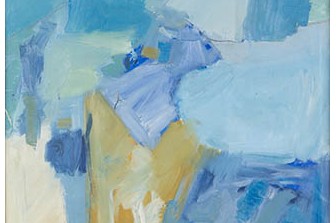
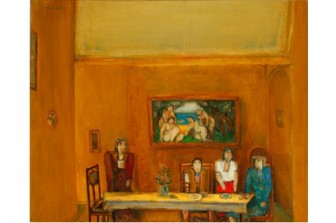
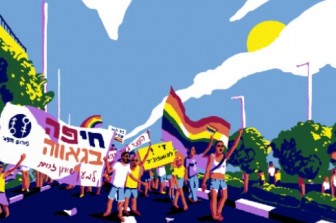
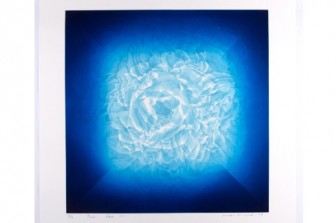
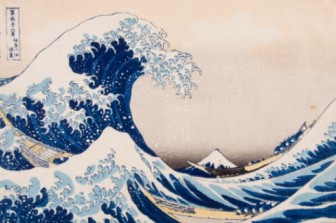
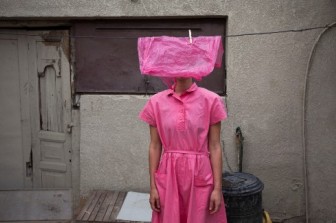
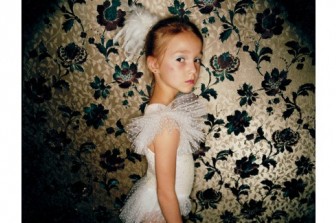
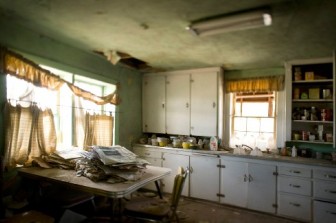
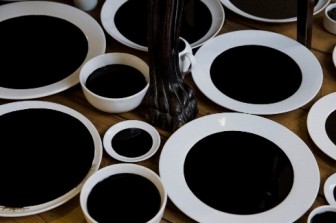

Please contact us and we will contact you as soon as possible